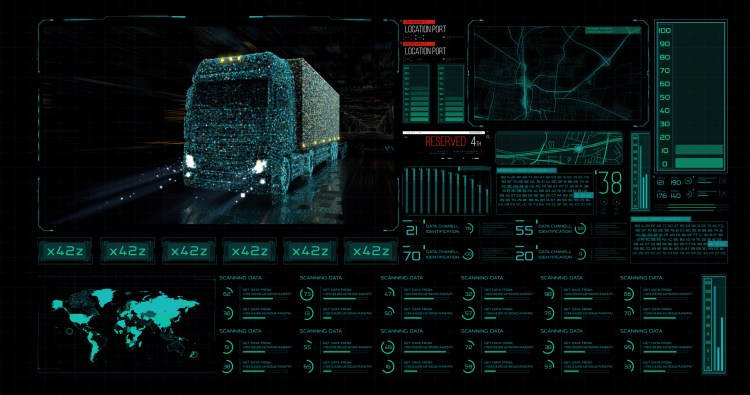Want smarter insights in your inbox? Sign up for our weekly newsletters to get only what matters to enterprise AI, data, and security leaders. Subscribe Now
Hundreds of IoT platforms gather data from connected devices, equipment and vehicles. Many of these platforms target specific types of equipment or business workflows. Founded by Sanjit Biswas and John Bicket in 2015, Samsara launched into this space with an aim to bring data from these various platforms into a single connected operations cloud focused on transportation and logistics.
Samsara has recently announced the 200th partner integration on the Samsara App Marketplace, making it the largest open ecosystem for physical operations. Partners include leading vehicle manufacturers like Ford, GM, Navistar and Stellantis Free2move and transport refrigeration leader Thermo King.
These partnerships have driven data processing on the platform. In the last six months, Samsara has processed more than 2.6 trillion data points and over 23 billion API calls.
Focus on fleets
There is considerable competition among various platforms for consolidating data, but Samsara has managed to grow its customer base beyond 20,000 enterprise customers across industries, including transportation, wholesale and retail trade, construction, field services, logistics, utilities and energy, government, healthcare and education, manufacturing and food and beverage.
AI Scaling Hits Its Limits
Power caps, rising token costs, and inference delays are reshaping enterprise AI. Join our exclusive salon to discover how top teams are:
- Turning energy into a strategic advantage
- Architecting efficient inference for real throughput gains
- Unlocking competitive ROI with sustainable AI systems
Secure your spot to stay ahead: https://bit.ly/4mwGngO
The platform helps companies access, analyze and act on operations data in one consolidated service. A recent Samsara survey found that early adopters of IoT hardware are often more agile and resilient.
The company’s platform helps enterprises adjust fleet routes, coordinate operations like snow removal, or prioritize repair schedules after a disaster. Governments can also use these integrations to improve and optimize processes such as pothole repairs or waste removal and recycling.
Consolidating data
Samsara’s App Marketplace provides customers with a single source of truth for all data related to connected fleet operations and the business processes built on them.
This consolidated approach helps enterprises replace silos of data and processes from different tools. For instance, companies might use various tools for vehicle routing, driver safety and hours of service compliance. Samsara’s platform consolidates these work streams and integrates the data between systems to boost efficiency, reduce costs and use the data at scale.
Companies specializing in a particular domain connect their service to the platform to attract new customers, simplify data integration and take advantage of data from across the ecosystem. According to a Samsara spokesperson, its customer Liberty Energy, a leading oilfield service firm with about 3,000 sites, expects to save $10 million through integration with its tax service provider and location tracking.
Other Samsara customers start with one use case and then take advantage of other services offered via its marketplace. For example, Arka Express, a van truckload carrier with nearly 500 trucks, started using Samsara for safety compliance. Once onboard, they expanded to additional services for maintenance, compliance and other use cases that helped reduce operational costs.
Samsara’s success is part of a broader trend around vendors developing connected data services for physical operations to drive digital transformation into the physical world — similar to the approach of companies like Mapped for buildings data and Zyter for telehealth data.


